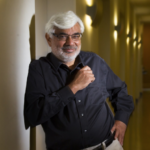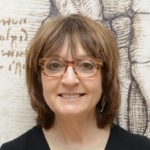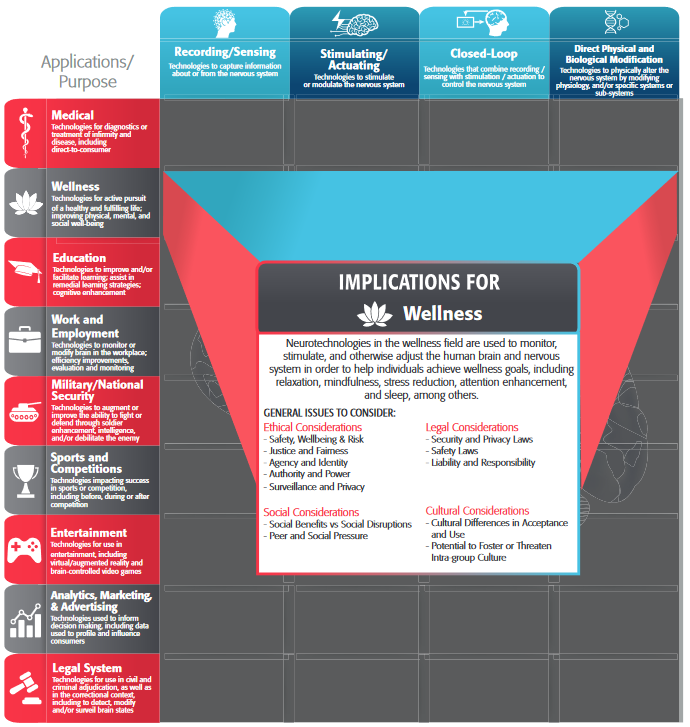Program
Day 1: Thursday, November 10, 8am – 7pm PT
Mini-symposium 1: Integrated Neurotechnology
Leveraging Silicon Integration for Implantable Neurotechnology
Technical Challenges at the Frontier of Clinical Adaptive Neuromodulation
Pervasive Epilepsy Detection: Where Brain Meets Personalized Wearable Healthcare
Miniature Battery-free Bioelectronic Networks
Multiscale, Multimodal Neuroelectronics Enabled by Soft Nanomaterials
Minimally-invasive Neural Drug Delivery System (MiNDS)
Mini-symposium 2: Computational Modeling and Signal Processing
How Is the Brain Reprogrammed in Alzheimer’s Disease?
In Doubt of Your Own Decision: Neural Circuit Modelling of Metacognition
Such Stuff as Dreams are Made: A Computational Tale of Optimal Transport and Brain Clearance
Measuring, Modeling and Shaping Neural Plasticity in Brain-Machine Interfaces
Neural Circuits Underlying Speech Processing in Epilepsy
Development of Speech-based Brain-Computer Interfaces for Communication
17:30 Reception and Guest Panel on Autism
Chair, Roger Bingham, UCSD, Salk Institute
Day 2: Friday, November 11, 8am – 5:30pm PT
Mini-symposium 3: Clinical Application and Impact
Tracking Brain and Behavioral Dynamics to Optimize Deep Brain Stimulation for Depression
Application of Artificial Intelligence in Predicting Pain Perception and Spinal Cord Stimulation Therapy Response in Chronic Pain
Engineering Plasticity in primate cortex using optogenetics
Neural Microimplants in Fundamental and Translational Research
Restoration of Thermotactile and Motor Functions in the Hand
Redefining What It Means to be Human Through Bionic Limbs
Developing Responsible Neurotechnology for Health and Wellness:
The IEEE Brain Framework
Chair, Gerard O’Leary, NerveX Technologies
Joanne Wong, IEEE Entrepreneurship
Ariane Tom, Kaleida Capital
Brooks Gross, NIH
Adam Sefler, NTX Services
Carolina Mora Lopez, IMEC
Jacob Robinson, Rice University
Aadeel Akhtar, PSYONIC
Payam Heydari, UC Irvine
Keynote Speaker Bios

Carolina Mora Lopez received her Ph.D. degree in Electrical Engineering in 2012 from the KU Leuven, Belgium, in collaboration with imec, Belgium. From 2012 to 2018, she worked at imec as a researcher and analog designer focused on interfaces for neural-sensing applications. During this time, she was the lead analog designer and project leader of the Neuropixels development project which resulted in the conception and fabrication of the Neuropixels 1.0 and 2.0 neural probes. She is currently the principal scientist and team leader of the Circuits & Systems for Neural Interfaces team at imec, which develops circuits and technologies for electrophysiology, neuroprosthetics and BMI. Her research interests include analog and mixed-signal circuit design for sensor, bioelectronic and neural interfaces. Carolina is a senior IEEE member and serves on the technical program committee of the ISSC conference, ISSCC SRP, VLSI circuits symposium, and ESSCIRC conference.

Shankar Subramaniam is a distinguished Professor of Bioengineering, Computer Science & Engineering, Cellular & Molecular Medicine, and Nanoengineering, and Joan and Irwin Jacobs Endowed Chair in Bioengineering and Systems Biology. He was the founding Director of the Bioinformatics and Systems Biology Interdisciplinary Program. He was named a distinguished scientist at the San Diego Supercomputer Center in 2010. He is a Fellow of the American Institute for Medical and Biological Engineering, American Association for the Advancement of Science, and is a recipient of the UCSD Chancellor’s Award for Research Excellence, and Genome All Star, Smithsonian Foundation and Laboratory Automation awards. Subramaniam received a Ph.D. from the Indian Institute of Technology.

Helen Mayberg MD, a neurologist, is Professor of Neurology, Neurosurgery, Psychiatry and Neuroscience, and the Mount Sinai Professor in Neurotherapeutics at the Icahn School of Medicine where she serves as Founding Director of the Nash Family Center for Advanced Circuit Therapeutics. Recognized for her neuroimaging studies of brain circuits in depression and their translation to the development of deep brain stimulation as a novel therapeutic for treatment resistant patients, she now leads a patient-focused transdisciplinary research team with the shared mission to advance precision surgical treatments for complex neuropsychiatric disorders. Dr. Mayberg is a member of the US National Academy of Sciences, the National Academy of Medicine, the National Academy of Inventors and the American Academy of Arts and Sciences and participates in a wide variety of advisory and scientific activities across multiple fields in neuroscience.


